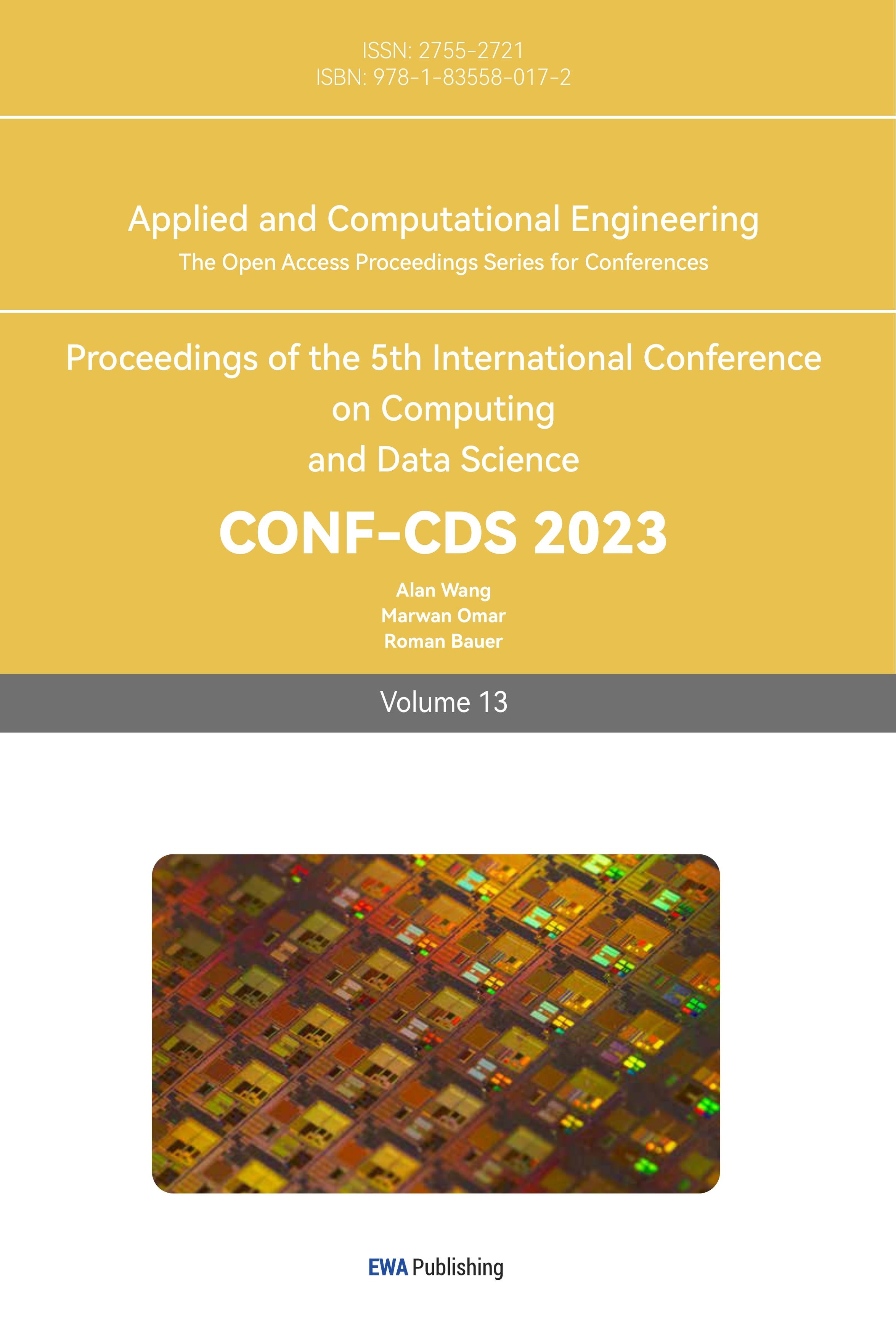References
[1]. Jain A, Del Pero L, Grimmett H, and Ondruska P, Autonomy 2.0: Why is self-driving always 5 years away? 2021. DOI:10.48550/ARXIV.2107.08142.
[2]. He K. M, Gkioxari G, Dollár P, and Girshick R, Mask R-CNN. IEEE International Conference on Computer Vision (ICCV), Venice, 22-29 October 2017, pp.386-397.
[3]. Abadi M, Barham P, Chen J, Chen Z, Davis A, Dean J, Devin Ma, Ghemawat S, Irving G, Isard M, et al. Tensorflow: a system for large-scale machine learning. In: 12th {USENIX} Symposium on operating systems design and implementation ({OSDI} 16), 2016; pp. 265–283.
[4]. KaiFu Lee, Yonggang Wang, Artificial Intelligence [M] Cultural Development Press, 2017.
[5]. Girshick R, Donahue J, Darrell T, and Malik J, Rich Feature Hierarchies for Accurate Object Detection and Semantic Segmentation, 2014 IEEE Conference on Computer Vision and Pattern Recognition, 2014, pp. 580-587, Doi: 10.1109/CVPR.2014.81.
[6]. Girshick R, “Fast R-CNN”. in 2015 IEEE International Conference on Computer Vision (ICCV), Santiago, 2015, pp.1440-1448.
[7]. Liu W, et al. SSD: Single Shot MultiBox Detector. In: Leibe B, Matas J, Sebe N, Welling M. (eds) Computer Vision -2016 European Conference on Computer Vision (ECCV), Amsterdam, 2016, pp.21-37.
[8]. Ge Z, Liu S, Wang F, Li Z, and Sun J, YOLOX: Exceeding YOLO Series in 2021, arXiv preprint arXiv:2017.08430, 2021.
[9]. Redmon J, Divvala S, Girshick R. and Farhadi A, You only look once: Unified real-time objectd etection, Proc. CVPR, 2016, pp. 779-788.
[10]. Pham V, and Dang T, Road Damage Detection and Classification with Detectron2 and Faster R-CNN, 2020 IEEE International Conference on Big Data (Big Data), 2020, pp. 5592-5601.
Cite this article
Wang,T. (2023). Object detection: review and improvement based on deep learning. Applied and Computational Engineering,13,1-6.
Data availability
The datasets used and/or analyzed during the current study will be available from the authors upon reasonable request.
Disclaimer/Publisher's Note
The statements, opinions and data contained in all publications are solely those of the individual author(s) and contributor(s) and not of EWA Publishing and/or the editor(s). EWA Publishing and/or the editor(s) disclaim responsibility for any injury to people or property resulting from any ideas, methods, instructions or products referred to in the content.
About volume
Volume title: Proceedings of the 5th International Conference on Computing and Data Science
© 2024 by the author(s). Licensee EWA Publishing, Oxford, UK. This article is an open access article distributed under the terms and
conditions of the Creative Commons Attribution (CC BY) license. Authors who
publish this series agree to the following terms:
1. Authors retain copyright and grant the series right of first publication with the work simultaneously licensed under a Creative Commons
Attribution License that allows others to share the work with an acknowledgment of the work's authorship and initial publication in this
series.
2. Authors are able to enter into separate, additional contractual arrangements for the non-exclusive distribution of the series's published
version of the work (e.g., post it to an institutional repository or publish it in a book), with an acknowledgment of its initial
publication in this series.
3. Authors are permitted and encouraged to post their work online (e.g., in institutional repositories or on their website) prior to and
during the submission process, as it can lead to productive exchanges, as well as earlier and greater citation of published work (See
Open access policy for details).
References
[1]. Jain A, Del Pero L, Grimmett H, and Ondruska P, Autonomy 2.0: Why is self-driving always 5 years away? 2021. DOI:10.48550/ARXIV.2107.08142.
[2]. He K. M, Gkioxari G, Dollár P, and Girshick R, Mask R-CNN. IEEE International Conference on Computer Vision (ICCV), Venice, 22-29 October 2017, pp.386-397.
[3]. Abadi M, Barham P, Chen J, Chen Z, Davis A, Dean J, Devin Ma, Ghemawat S, Irving G, Isard M, et al. Tensorflow: a system for large-scale machine learning. In: 12th {USENIX} Symposium on operating systems design and implementation ({OSDI} 16), 2016; pp. 265–283.
[4]. KaiFu Lee, Yonggang Wang, Artificial Intelligence [M] Cultural Development Press, 2017.
[5]. Girshick R, Donahue J, Darrell T, and Malik J, Rich Feature Hierarchies for Accurate Object Detection and Semantic Segmentation, 2014 IEEE Conference on Computer Vision and Pattern Recognition, 2014, pp. 580-587, Doi: 10.1109/CVPR.2014.81.
[6]. Girshick R, “Fast R-CNN”. in 2015 IEEE International Conference on Computer Vision (ICCV), Santiago, 2015, pp.1440-1448.
[7]. Liu W, et al. SSD: Single Shot MultiBox Detector. In: Leibe B, Matas J, Sebe N, Welling M. (eds) Computer Vision -2016 European Conference on Computer Vision (ECCV), Amsterdam, 2016, pp.21-37.
[8]. Ge Z, Liu S, Wang F, Li Z, and Sun J, YOLOX: Exceeding YOLO Series in 2021, arXiv preprint arXiv:2017.08430, 2021.
[9]. Redmon J, Divvala S, Girshick R. and Farhadi A, You only look once: Unified real-time objectd etection, Proc. CVPR, 2016, pp. 779-788.
[10]. Pham V, and Dang T, Road Damage Detection and Classification with Detectron2 and Faster R-CNN, 2020 IEEE International Conference on Big Data (Big Data), 2020, pp. 5592-5601.









